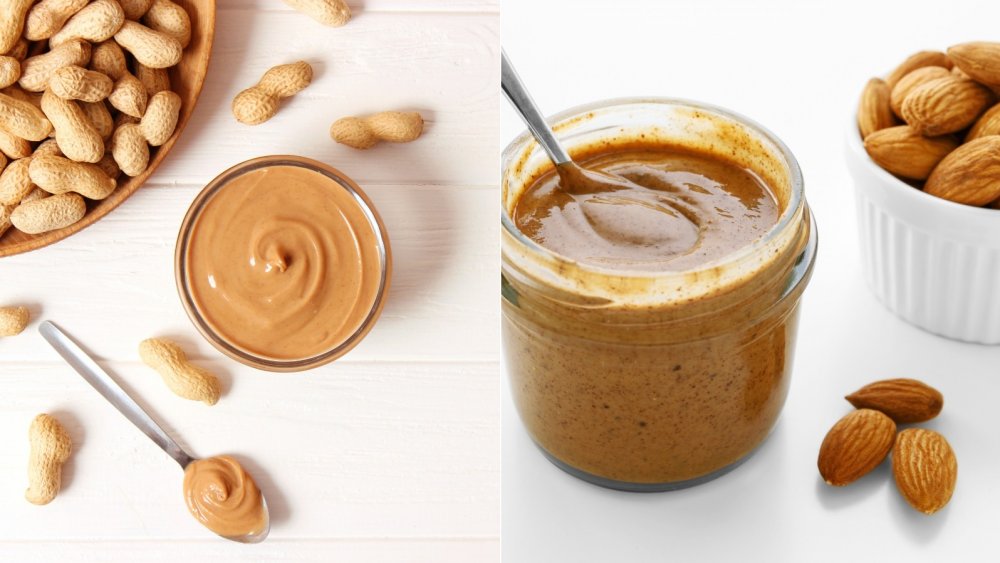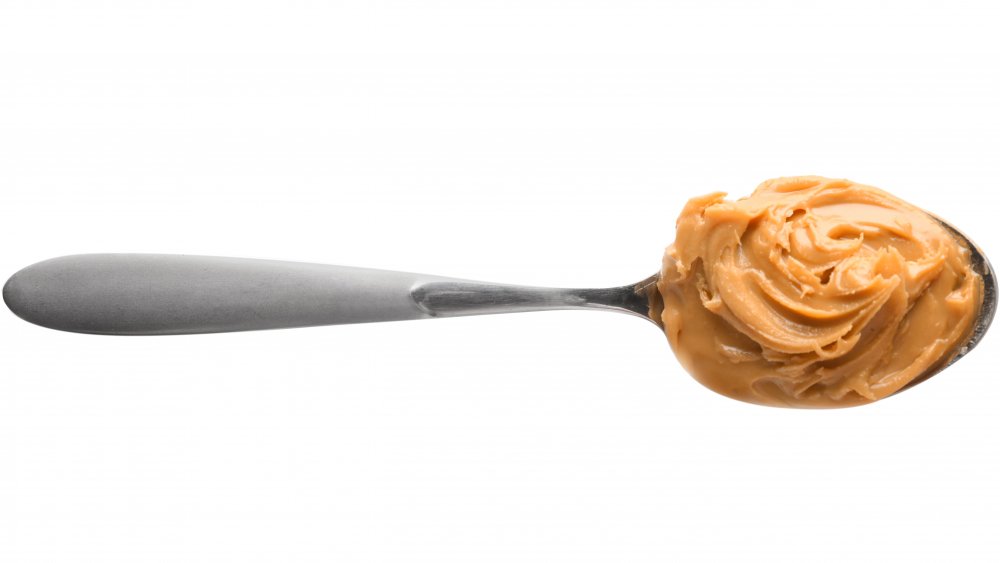Peanut Butter Vs Almond Butter: Which One Is Better For You?
At one time not so long ago, when you went to the supermarket to buy a nut-based sandwich spread, the only real choice you were faced with (besides the brand) was chunky or smooth. Well, all that has changed over the past few years since most grocers now carry several different types of nut butter in addition to peanut, with almond being the most common.
Which type of butter should you choose? If anyone in your family either has or goes to school or works with someone who has a peanut allergy, almond butter should always be your go-to. Peanut allergies can be life-threatening, after all, and even if you yourself are not an allergy sufferer, prioritizing your preferences at the risk of anyone else's life is just wrong. And yes, tree nut allergies can also be serious, but 70 percent of peanut allergy sufferers are often perfectly okay with almonds (via the American Academy of Allergy, Asthma, and Immunology).
Assuming you'll be eating your PBJ/ABJ sandwich (or nut butter cookies, or bread, or anything else) in an allergy-free environment, however, which spread is better for you? Well, both have their pluses and minuses. Peanut butter is nearly always going to be a more budget-friendly option, so if you're concerned about the health of your wallet, it will probably be your best bet. If nutrition is your primary concern, though, nutritionist Dr. Rachel Paul, Ph.D., RD told Eat This, Not That! that both nut butters are equally beneficial in their own way.
Nutritional benefits of almond and peanut butter
Peanut butter, surprisingly, has a lower fat content, with 25 percent less, but almonds may still be considered the winner here since Paul reveals that their fat is the monosaturated (good) kind. Almond butter has the edge when it comes to fiber, as well, with nearly double the amount. Almond butter also has a lot more calcium (seven times as much as PB), vitamin E (triple the amount), and iron (double) than does peanut butter. Both types of nut butter are equally high in minerals biotin, magnesium, potassium, and zinc; both, unfortunately, are equally high in calories (about 100 per tablespoon).
As to which butter you should pick, Paul says you really should be eating both: "The two nut butters have some different nutritional benefits [so] the best thing to do is to alternate between the two, [as well as] other nut and seed butters, to get a variety of benefits."


